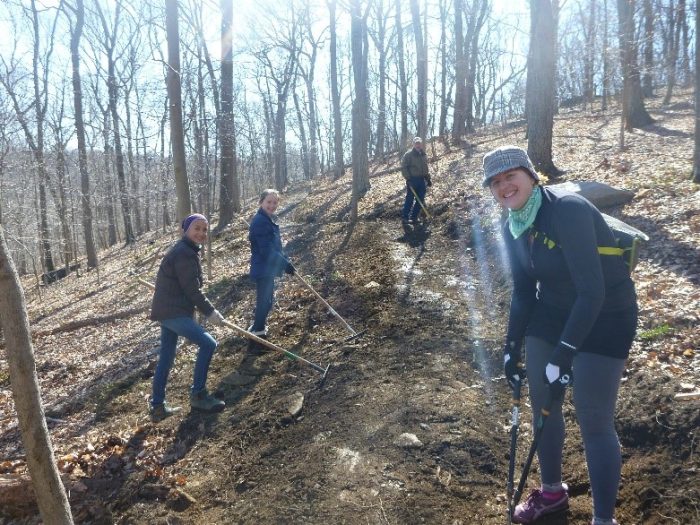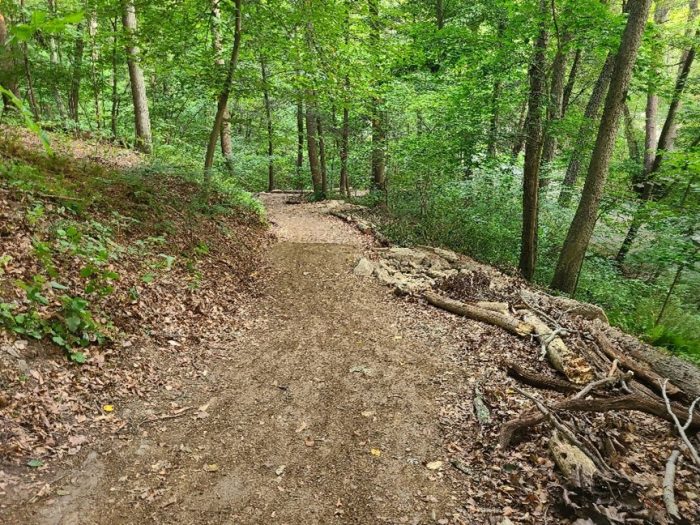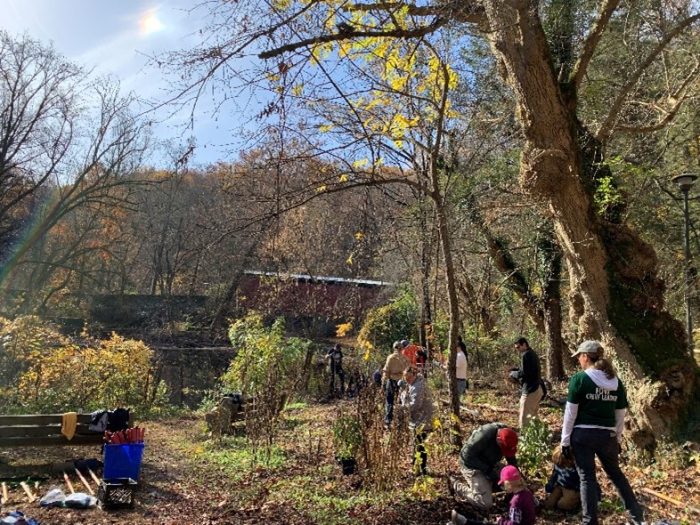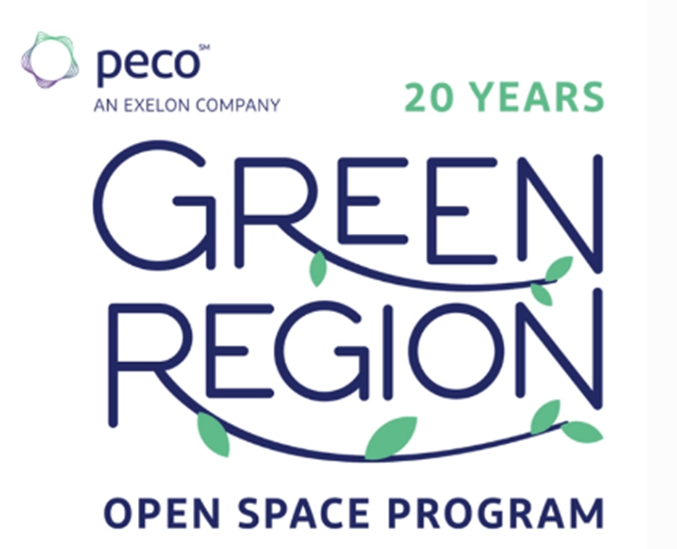How PECO Green Region Grants help sustain Wissahickon Valley Park
July 14, 2025Five-time award winner Friends of the Wissahickon use funds to maintain trails and protect the Red Covered Bridge from flooding

For two decades, the PECO Green Region Open Space Program, powered in partnership with Natural Lands has helped transform the region’s parks, trails, and public green spaces. And what better way to demonstrate its impact than by spotlighting the municipalities and nonprofit organizations who’ve experienced it first-hand, like Friends of the Wissahickon, the official nonprofit partner of Philadelphia Parks and Recreation, operating in one of Philadelphia’s most beloved parks, Wissahickon Valley Park.
Since 2007, Friends of Wissahickon has received multiple PECO Green Region grants, each one contributing to a long-term vision of sustainability, resiliency, and access. These projects not only improved the physical condition of the park but also enhanced its open space for generations to come.

A History of Impact
- 2007 – Sustainable Trails Initiative Planning
With PECO’s support of the grant, a plan was developed for the Sustainable Trail Initiative, which would become FOW’s overarching 2-decade project to improve trail sustainability, park-visitor experience, and watershed health in Wissahickon Valley Park.
- 2010 – Sustainable Trails Initiative
Friends of the Wissahickon received a Green Region bonus round grant that helped bring consistent signage throughout the park. The result: visitors could navigate more confidently, and the park’s thousands of annual visitors gained a deeper appreciation of the trail network and its natural features.
- 2012 – Sustainable Trails Initiative Stage 4: Design in the Andorra Natural Area
This grant focused on a section of the Andorra Natural Area, which plays host to one of Philadelphia‘s three environmental education centers, the Wissahickon Environmental Center. Funds supported the design of trail closures and reroutes, contributing directly to enhancing access and habitat in one of the park’s most scenic corners.
- 2018 – The Monster: Building Sustainability on the Yellow Trail
The Yellow Trail’s “Monster” section, notorious for its steep grade and erosion, received critical upgrades thanks to Green Region funding. A trail crew stabilized the trail and adjacent hillside, building features to convey stormwater and minimize erosion. Part of FOW’s Sustainable Trail Initiative, this turned a challenging section into a sustainable and enjoyable experience for hikers, bikers, and equestrians.

- 2023 – Red Covered Bridge Floodway Trail Resiliency and Planting Project
Most recently, PECO funding helped restore a flood-prone section of trail near the iconic Red Covered Bridge. Native plantings and improved trail-side stormwater conveyance were key features of this project, strengthening the park’s climate resiliency and protecting this unique creek-side trail from future storm damage.
“The investments made through the PECO Green Region Open Space program have been transformational for Wissahickon Valley Park and Friends of the Wissahickon,” said Sarah Marley, Interim Executive Director. “This support has helped FOW leverage additional resources to improve park experience for over 2 million visitors, while balancing the needs of the park as a watershed and wildlife habitat.”

Through five Green Region grants over nearly 20 years, Friends of the Wissahickon has shown what’s possible when a nonprofit has the vision and the partnership to make green spaces thrive. Their work in Wissahickon Valley Park is a testament to what long-term investment in open space can achieve.
As PECO marks 20 years of the Green Region program, Friends of Wissahickon’s story is a powerful reminder that protecting nature is not a one-time effort, it’s a sustained commitment.
In partnership with Natural Lands, PECO’s Green Region Open Space Program has awarded over $3 million in funding for nearly 400 individual open space improvement projects. These investments help preserve and enhance local green spaces, providing more communities with access to nature. Among other enhancements, these grants have funded the planting of almost 9,000 trees, supported more than 150 upgrades to local parks, built and improved more than 50 miles of trails, and improved access to natural areas.

